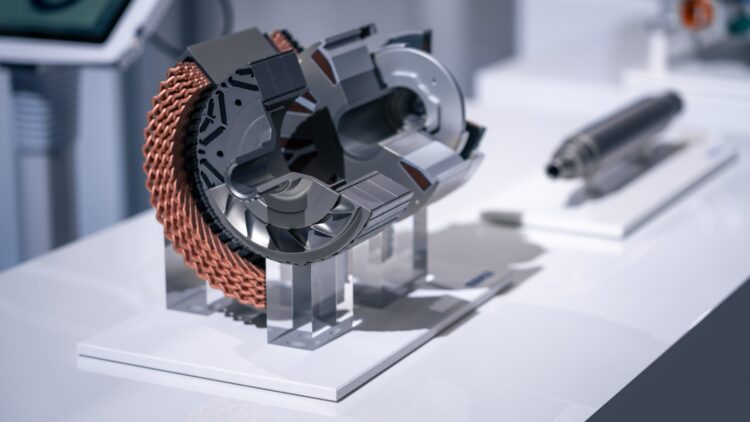The automotive industry witnesses German developments through an innovative breakthrough that will transform our perspective on engine operations. Mahle announced its conversion solution for existing diesel engines into hydrogen-powered systems that can establish a sustainable environment and encourage eco-friendly progress. The company makes a bold commercial effort to challenge electric vehicle industry leader Tesla through products that generate only water as their waste output.
The diesel engine retrofit system threatens to break Tesla’s monopoly in electric transportation
The Mahle company develops a conversion method that adds hydrogen operation capabilities to current diesel engines. The technology shows strength for implementation into heavy-duty vehicles, including trucks combined with agricultural machinery, which cannot effectively use electric powertrains. The Mahle technology enables older vehicles to continue driving longer lives while achieving major environmental advantages through diesel engine hydrogen conversion.
Dr. Marko Worth of Mahle leads engineers who state that the conversion process modifies only minor aspects of the engine’s piston and head unit. A control module is necessary to regulate combustion temperatures because hydrogen produces lower heat than diesel fuel. The retrofitting solution protects abandoned diesel vehicles from destruction while providing sustainable operational possibilities to handle heavy-duty equipment.
The newest partnerships create faster momentum for advancing hydrogen mobile solutions.
Mahle secured multiple orders from DEUTZ for developing hydrogen engine components, which the manufacturer will supply for future production. The company plans to introduce these engines into stationary generator units before expanding their use to agricultural equipment and construction vehicles. By building this partnership, both companies advance their progress toward achieving climate-neutral transportation solutions.
As CEO of Mahle, Arnd Franz believes that technological diversity is crucial to achieving climate goals. Hydrogen engines’ main advantage lies in their application where electric power systems might not operate. Mahle’s engine system and alternative fuel know-how have made it a leading company among leaders developing these emerging technologies.
Existing high costs of hydrogen fuel could decrease soon
The main obstacle preventing more widespread adoption of hydrogen-powered vehicles is the lack of refuelling sites. The high costs, along with limited distribution channels of hydrogen, restrict its usage as a fuel source for commercial vehicles today. The growing number of hydrogen-powered vehicles will boost refuelling station requirements, which will consequently decrease costs and expand the fueling station network.
The hydrogen engine needs exactly 1 kilogram of hydrogen gas to get you 100 kilometres in driving distance. Infrastructure development will lower hydrogen prices to the point where it becomes competitive as a fuel choice. The strategic target of Mahle’s heavy-duty applications offers better logistics management for fueling, which enhances hydrogen technology adoption prospects.
A new technology serves as a potential power source both for tractors as well as hospitals and multiple additional applications
Mahle’s hydrogen engine technology functions as a major development path for sustainable vehicle systems. Renewing traditional diesel power units represents Mahle’s approach to addressing emission problems within sectors that cannot easily use electrical systems. This method supports environmental goals while simultaneously delivering economic advantages from the extended use of older vehicles.
Hydrogen engines have a wide array of practical applications, including power generation for hospital generators and agricultural machinery operations. Mahle stands out for its commitment to innovation and sustainability, which positions it as a leading organization in building technology for cleaner future solutions. Hydrogen infrastructure development, together with lowering costs, creates opportunities for hydrogen engines to become mainstream variants that would displace electric and diesel powertrain systems.
Germany has reached a defining point in its mission to develop eco-friendly transportation following Mahle’s introduction of hydrogen engines. The converted diesel engines from Mahle operate with hydrogen fuel systems to present a useful replacement for electric vehicles primarily suitable for heavy-duty usage. The innovative technology serves two purposes: it lowers emissions, and it increases the longevity of current vehicles to deliver practical, sustainable transportation methods. The future of clean mobility depends significantly on Mahle’s hydrogen engine technology because the improvement of hydrogen infrastructure will make these engines essential for global clean mobility transitions.


